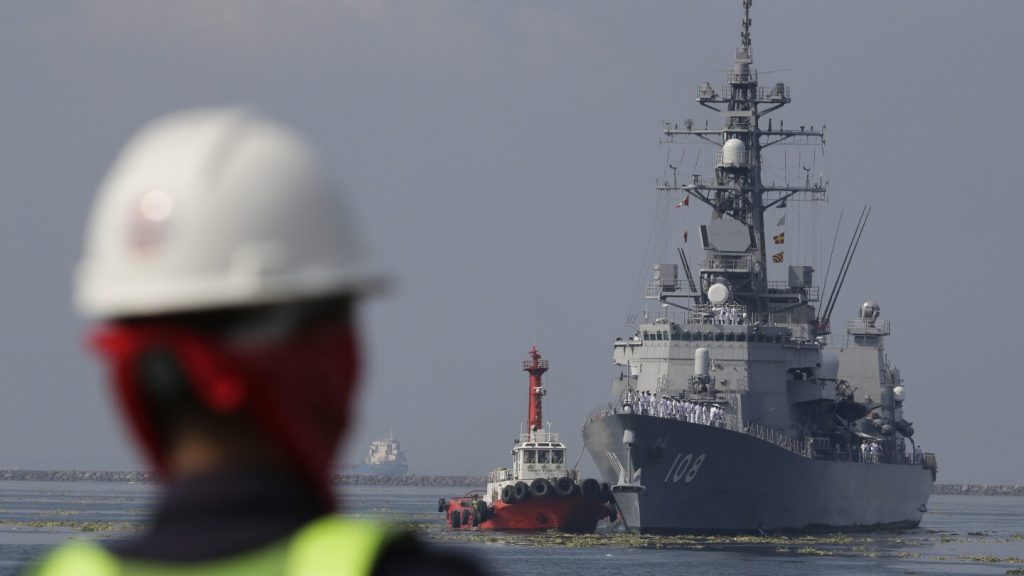In a show of force against Beijing’s aggressive actions in the South China Sea, the United States, Japan, Australia, and the Philippines are set to hold their first joint naval exercises, including anti-submarine warfare training. The exercises aim to safeguard the rule of law in the Indo-Pacific region and uphold freedom of navigation and overflight. The four countries have reaffirmed their support for a 2016 international arbitration ruling that invalidated China’s expansive claims in the region.
While China was not mentioned directly in the joint statement issued by the defense chiefs of the four nations, they emphasized the importance of the international order based on the rule of law for a peaceful and stable Indo-Pacific region. The specific details of the military drills, named the Maritime Cooperative Activity, were not provided in the statement. Japan announced that it would deploy its destroyer for the exercises, stressing the issue of the South China Sea as a concern for the international community.
U.S. Defense Secretary Lloyd Austin highlighted the shared commitment to ensuring countries’ freedom to operate in accordance with international law. Australian Defense Minister Richard Marles emphasized the importance of national sovereignty and adherence to international rules and norms. The Philippines’ Defense Secretary Gilberto Teodoro Jr. stated that the exercises would be the first in a series aimed at enhancing the country’s capacity for self-defense, both individually and collectively.
The territorial disputes in the South China Sea involve several countries besides China and the Philippines, including Vietnam, Malaysia, Brunei, and Taiwan. Tensions between Beijing and Manila have escalated, leading to concerns about potential armed conflicts. The U.S. has warned of its obligation to defend its treaty ally – the Philippines – in the event of an armed attack, including in the South China Sea. China has cautioned against U.S. intervention in the disputes, noting the potential for a major conflict involving the two world powers.
Japan has its own territorial disputes with China in the East China Sea, which could also be a topic of discussion during an upcoming summit between President Joe Biden, and the leaders of Japan and the Philippines. In recent clashes, the Chinese coast guard used water cannons on a Filipino supply boat, injuring an admiral and four navy personnel. The Philippines strongly protested against China’s actions, while Beijing accused Manila of intruding into its territorial waters and warned against further provocations. The situation in the South China Sea remains tense, with fears of escalation persisting.


